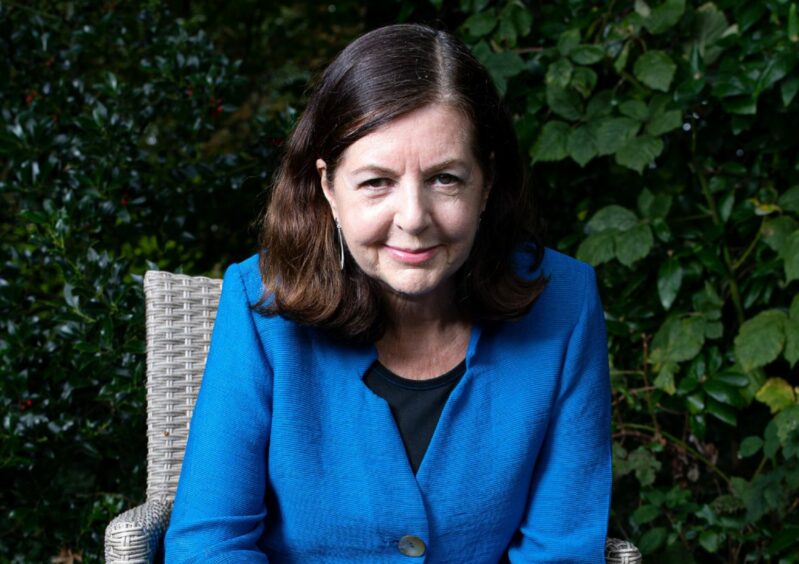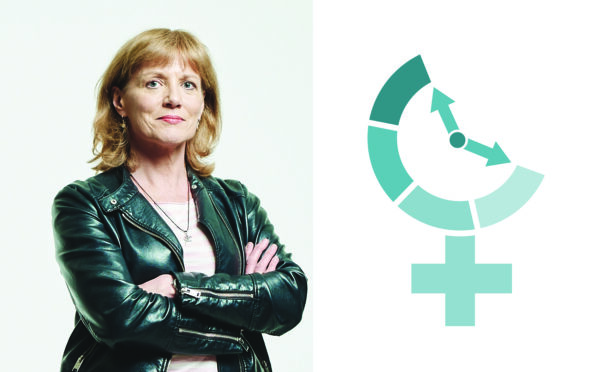
Working-class women are missing out on life-changing treatment for menopause because of knowledge gaps in the NHS, campaigners warn.
Doctors report middle-class women being better informed about menopause symptoms and treatments and are increasingly more likely to go private.
Journalist and author Kate Muir believes a class divide means many women are not being offered hormone replacement therapy (HRT) to ease debilitating symptoms of menopause.
She said: “The divide between the Have-HRTs and the Have-Not-HRTs is shameful; the rich get their hormones privately and often secretly, sometimes with a touch of Botox and filler at an expensive clinic, while the poor struggle to get any help at all.”
HRT works by replacing hormones that are at a lower level as you approach the menopause. This can help to relieve symptoms like hot flushes, night sweats and mood swings.
Muir, who has written books and made documentaries highlighting a lack of awareness of menopausal issues, is currently taking a new treatment called body-identical HRT, using hormones mirroring the body’s own natural hormones. She believes it’s safer than other hormone replacement therapies, but fears women in Scotland are missing out because they – and their GPs – don’t know about it.
Muir says when it comes to menopause, which has historically been a taboo topic, knowledge really is power, for women and doctors.
“Some old-fashioned NHS GPs, educated before the new, safer hormone treatment, still refuse to prescribe HRT altogether, and it is women who are already struggling with compromised health that need it most,” she said.
Dr Kate Pickering, a GP in Glasgow, said there is an inequality of knowledge, with those from lower socio-economic backgrounds sometimes failing to understand their symptoms.
And, she says, while HRT is not for every woman, it’s up to doctors to have knowledge of the range of treatment available: “I’ve seen women in out of hours who don’t understand why they are having hot flushes.
“Some women don’t know much about the menopause or what can be done to treat symptoms but doctors have the expertise and authority to help these patients.”
The need for a greater understanding of symptoms and awareness of potential treatments is echoed by Tracy Broomfield after her GP failed to spot the signs of perimenopause, the transitional period before the menopause
The 48-year-old, from Cumbernauld, eventually sought private treatment and has now been on HRT for 18 months. “The NHS spent a fortune prescribing me drugs, sending me for scans and arranging appointments with neurologists – and it turned out all I needed was a £4 bottle of HRT,” Broomfield said.
Licensing manager Broomfield says the symptoms started to slowly creep in around four years ago, but her GP looked at each one in isolation instead of collaboratively. If this had been done, she feels, she could have had a much earlier diagnosis.
“I couldn’t stop crying. I would wake up in the night and my whole insides were trembling. The doctor put me on anxiety medication. I was also getting incredible joint and muscle pain and had problems with migraines and low mood. It was debilitating.
“There was no mention at all from the GP about the symptoms being perimenopausal. I still had my period so I think it’s just something they didn’t look for. But if all the symptoms were looked at together, along with my age, perimenopause should have been considered.”
It was only when Broomfield read a post on Meg Matthews’ Instagram that she realised her ailments could be menopausal. “I referred myself to an NHS clinic and waited 10 months for an appointment,” she said. “The nurse said they couldn’t prescribe HRT because my mum had a history of heart disease. I left as broken as I went in.”
Broomfield contacted a private clinic in England, forking out hundreds of pounds for consultations and a prescription of body-identical HRT. And within days was feeling better.
“I am so thankful I could afford it, but my heart goes out to the women struggling to be diagnosed with or get treatment for menopause,” she said. “The difference it has made to my life has been incredible.”
Recently, Broomfield managed to get the drug on NHS prescription. “I could have started much earlier if there had been an accumulative response by the doctor. When I think of how many scans and GP appointments and how much time and money was spent on prescriptions it all seems a waste when all I needed was HRT. There needs to be better, more in-depth training for GPs.”
Muir says the drug Utrogestan, used in body-identical HRT, is readily available in London where she lives, but is not approved by the Scottish Medicines Consortium for menopause as it was not judged to be value for money to NHS Scotland.
It’s currently not on lists of preferred HRT drugs in Scotland, but Pickering says doctors do have the freedom to authorise it on a case-by-case basis. “There are lots of drugs like that, it’s up to the doctor to work with the patient, for the patient, to decide on the best treatment for each individual,” she said. “The menopause experience isn’t the same for all women, and neither are the treatments.
“With HRT, there’s no one size fits all. It’s often a case of trial and error. The most important thing about HRT is speaking to your doctor about it and getting something that suits you.”
Dr Heather Currie, a former head of the British Menopause Society and founder of Menopause Matters magazine, agrees. “For many, lifestyle choices, such as a healthy diet, exercise, less alcohol and no smoking can help,” she said. “For others, it’s cognitive behavioural therapy or yoga which are good for sleep imbalance and mood.
“And some women find alternative therapies like isoflavons, red clover and black cohosh, work best.
“There are also other prescriptions such as antidepressants and there is ongoing research into a brain chemical that can reduce hot flushes. There are many options.
“The fact is that there is so much more awareness of the impact of the menopause. And it’s this awareness that helps people learn more about it.”
The rich go private for their hormones. The rest struggle to get any help at all. It’s shameful
By Kate Muir
This is what I knew about the menopause a few years ago: “Periods stop. Full stop. Not a problem. And whatever you do, don’t take HRT.” I was so wrong I wrote a book about it, and made a myth-busting menopause documentary with Davina McCall.
Doing nearly three years of research, I’ve discovered the huge inequalities in access to knowledge of the menopause, and access to the safest forms of hormone replacement therapy (HRT). Particularly in Scotland.
My own menopause journey was not just a car crash, but a full Thelma-and-Louise off-the-cliff moment that affected my health, my relationship and my job, and I don’t want to sit around watching other women getting into the same mess.
I started getting sudden heart palpitations in my late-forties, and would wake up at 4am panicking and anxious. I thought I was going crazy. My GP sent me for an electrocardiogram. My heart was fine – I’m a runner. Her diagnosis was “too much coffee”. In fact, the palpitations were caused by my hormones estrogen and progesterone behaving like they were on a rollercoaster before they ran out at menopause.
It was only after I started reading scientific papers about menopause that I discovered 11% of perimenopausal and menopausal women get heart palpitations. But my GP didn’t know that because menopause is still not a compulsory separate module on the curriculum.
My palpitations stopped forever when I started taking HRT – estrogen gel through the skin, a Utrogestan micronised progesterone pill every night, and a blob of testosterone cream. Not all of these are easy to get on the NHS in Scotland. My hot flushes and sore joints also disappeared but, for me, the most important effect of the HRT was on my memory.
In surveys, over 60% of women complain of brain fog around menopause. When I was 52, I was the film critic for a national newspaper, watching and remembering 350 movies a year, so I realised I might have the occasional lapse. But one Saturday I was writing a shopping list thinking “must shave my legs” and I wrote down the word “shaver”. I couldn’t remember the word “razor”.
I was terrified I was getting Alzheimer’s disease. My mother, Ella Muir, who was a personnel manager in a Glasgow department store and later worked for the Citizen’s Advice Bureau, died of Alzheimer’s in 2015. Her memory was always great – then suddenly she started being unable to remember simple nouns, then names, then facts, and then me, as the disease progressed.
So I was overjoyed when I realised the positive effect estrogen and testosterone had on my brain – my memory came back, razor sharp. I realised that getting women access to HRT was not just about hot flushes, but long-term brain and bone health. One in two women get osteoporosis, and HRT stops your bones disintegrating.
The new body-identical HRT available on the NHS, which I use, is far safer than the old combined estrogen and progesterone pills. The new natural progesterone and transdermal estrogen is an exact copy of your own hormone, extracted from plants, and since the estrogen is taken through the skin, there’s no risk of causing blood clots, and indeed estrogen helps prevent cardiac disease.
A French five-year trial showed body-identical HRT did not cause breast cancer, and had a low-to-no risk over 10 years.
But everyone still seems to think HRT is dangerous when, in fact, the famous 2002 WHI study linking it to an increase in breast cancer was on the old, combined, synthetic pill. The best NHS menopause clinic in London gives 95% of its patients the new body-identical HRT.
So the safer form of HRT is good news – but not enough women know about it. The divide between the Have-HRTs and the Have-Not-HRTs is shameful; the rich get their hormones privately at an expensive clinic, while the poor struggle to get any help at all.
Some old-fashioned NHS GPs, educated before the new, safer hormone treatment, still refuse to prescribe HRT altogether, and it is women already struggling with compromised health that need it most.
As Dr Kate Pickering, a GP in Glasgow for three decades, explained to me: “If you’re 10 floors up in a council flat in Easterhouse and you’re a grandmother getting up to look after a baby because the mother is looking after the older kids and you’ve got night sweats – well, HRT should be bog standard to help. Menopause is a big issue and there’s not enough information available. No one ever talks about working-class women and it’s a real inequality.”
I also talked to Dr Helen Smith, who works in the Kilmarnock area, which has one of the worst mortality rates in the country, and she said: “A lot of middle-class women will do their own research and ask for what they want. So many of my patients come from a very different place, with significant adverse childhood experiences, domestic abuse, alcohol and significant drug issues.
“If they can’t afford data on their phones to educate their children, they won’t be downloading a menopause app, will they?”
And a study from Warwick University showed that in the UK, women who live in the most economically deprived areas are less likely to get HRT and, even if they get HRT, they’re more likely to be given the old, riskier combined pill.
Let’s just look at what’s on the Greater Glasgow area NHS formulary – the list of drugs they advise doctors to use. The top three entries are all for Elleste combined pills. Only at number four is there a transdermal estrogen spray. But the real road block in Scotland to safer HRT is that the body-identical progesterone Utrogestan is not even on the formulary – GPs who care like Dr Smith have to prescribe it off-licence.
But in London and the South, Utrogestan is readily available. (Another safer option for women refused Utrogestan is the Mirena coil.) Why don’t Scotland’s women deserve the best health options too?
Maybe that will change. Caroline Phipps-Urch, a yoga teacher who runs workshops as part of The Menopause Sisters, has launched a petition for NHS Lothian to make micronised progesterone available to patients. As for testosterone, which is also a female hormone and helps with energy, memory and libido, that’s usually only available from a specialist clinic.
But, for most women, getting the best-tolerated and safe HRT is a problem. We’re making our follow-up to the Davina McCall: Sex, Myths And The Menopause documentary at Finestripe Productions in Glasgow, and there are five women on HRT on the production team – including me. Two were still on the old combined pill, and changed to safer Utrogestan and transdermal estrogen after they read the science papers researching the programme. One has waited a year to get an appointment at an NHS menopause clinic in Glasgow for progesterone.
The call for change has to come from women up, because it’s not coming from the medical establishment down. Carolyn Harris MP has campaigned for women to get free HRT prescriptions in England, bringing it into line with Scotland, but we need someone at the top to take a long, hard look at the science.
A study of the health records of 105,000 women in the UK over 32 years, showed those taking HRT of any kind were 9% less likely to die early. It’s a no-brainer for savings to the heathcare system – and for saving women’s sanity.
One last note. It turns out you can take the safer HRT for life – and start it late. The woman who commissioned our menopause programme at Channel 4, Paisley-born Dorothy Byrne, decided to start taking HRT at the age of 68. “I wondered why I felt different, and I realised I was no longer waking up three times a night,” she told me. She is now the president of Murray Edwards College, Cambridge.
As we live, on average, to the age of 83, why shouldn’t those later years be healthy and productive? We need to talk about HRT and the menopause at the highest level. Now.
Everything You Need To Know About the Menopause (but were too afraid to ask) by Kate Muir, out now from Gallery Books
Unions: Workplace awareness is big step forward
A greater awareness of how menopause can impact on working women is a “huge step forward”, according to Roz Foyer, general secretary of the Scottish Trades Union Congress.
“Quite a few affiliates are taking forward workplace guides and policies around menopause to support members and it’s making a difference,” Foyer said.
“We’ve seen that women didn’t feel menopause was taken seriously enough in the workplace. There was a reluctance to approach management if they were struggling and concern it could be treated as a joke which is pretty off-putting, particularly as a lot of women are at the height of their careers when the worst of the symptoms hit. So policies and support can really help. Women should speak to their trade unions about negotiating a policy – and do it now rather than waiting till they are going through the menopause when they feel vulnerable and without that power to push for it. It’s a very important safety net. We have employer legislation in place for maternity, but nothing for menopause which will be a big issue in the workplace for many women at some point in their lives. It should be taken as seriously as any other health issue or disability.”
Elaine Dougall, regional coordinating officer for Unite union has just helped Scottish Power implement a menopause policy and says she hopes its a sign of things to come.
“We’ve been speaking about mental health and the menopause for a few years now and in October decided to develop guidance to support women going through the menopause,” Dougall said. “There are a huge number of female employees at Scottish Power and it’s great that they will feel supported – and the families of menopausal women, who can be impacted as well.
“I have been active in the union for nearly 30 years and I’ve seen a shift in attitudes to women in the workplace which is so welcome. Women shouldn’t feel embarrassed because they are menopausal. I hope this will give them confidence and pave the way for other companies in the country to follow suit.”
Sisters! Rise up from your slumbers and demand better
By Dorothy Byrne
Little old ladies can do big new things. In September last year, at the grand age of 69, I became president of Murray Edwards College at Cambridge University.
It’s a job which bears a hefty workload and responsibility for the education of 600 young women but I am also an executive producer of an upcoming Channel 4 series on Ghislaine Maxwell and an international investigation for ITV. I’m an active trustee of two charities as well.
Some women say just listening to me describe my life makes them feel exhausted. They ask the secret of my energy levels and I tell them it’s no secret; it’s body-identical HRT. I started taking it when I was 68, more than a decade after my menopause.
During that decade I felt lucky if I slept for two hours at a time. As a consequence, I kept falling asleep during the day.
I hadn’t realised that you can go on to HRT long after your periods end. Doing so has transformed my life. Within a few weeks, I was sleeping normally. I lost weight. People started to comment I looked much younger. Of course I did – I wasn’t constantly knackered.
HRT seems to be a secret some doctors are not sharing with older women. I say: “Sisters! Rise up from your slumbers and demand it!” Of course, it’s not suitable for everyone, but it should be a basic medical right.
The medical establishment is keen to put us on hormones to stop us having babies when we are young. But when we get older, we are women of no importance, supposed to sleep our way to the grave.
Dorothy Byrne was head of news and current affairs at Channel 4 for 15 years

Enjoy the convenience of having The Sunday Post delivered as a digital ePaper straight to your smartphone, tablet or computer.
Subscribe for only £5.49 a month and enjoy all the benefits of the printed paper as a digital replica.
Subscribe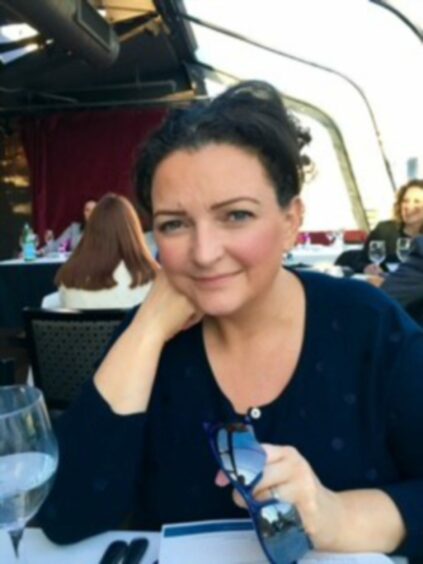
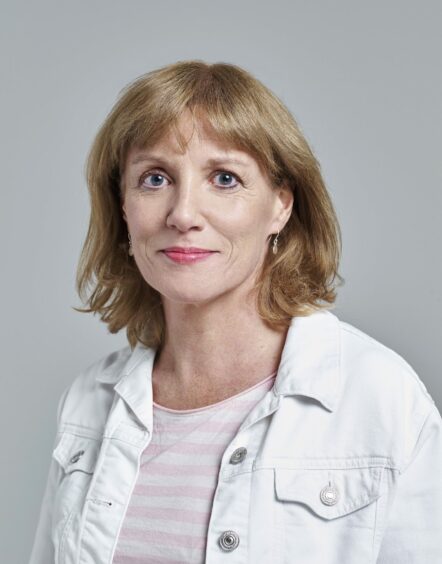
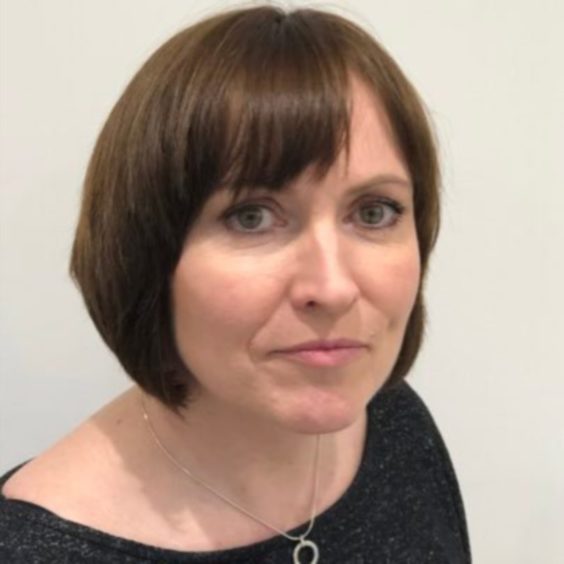 © SYSTEM
© SYSTEM